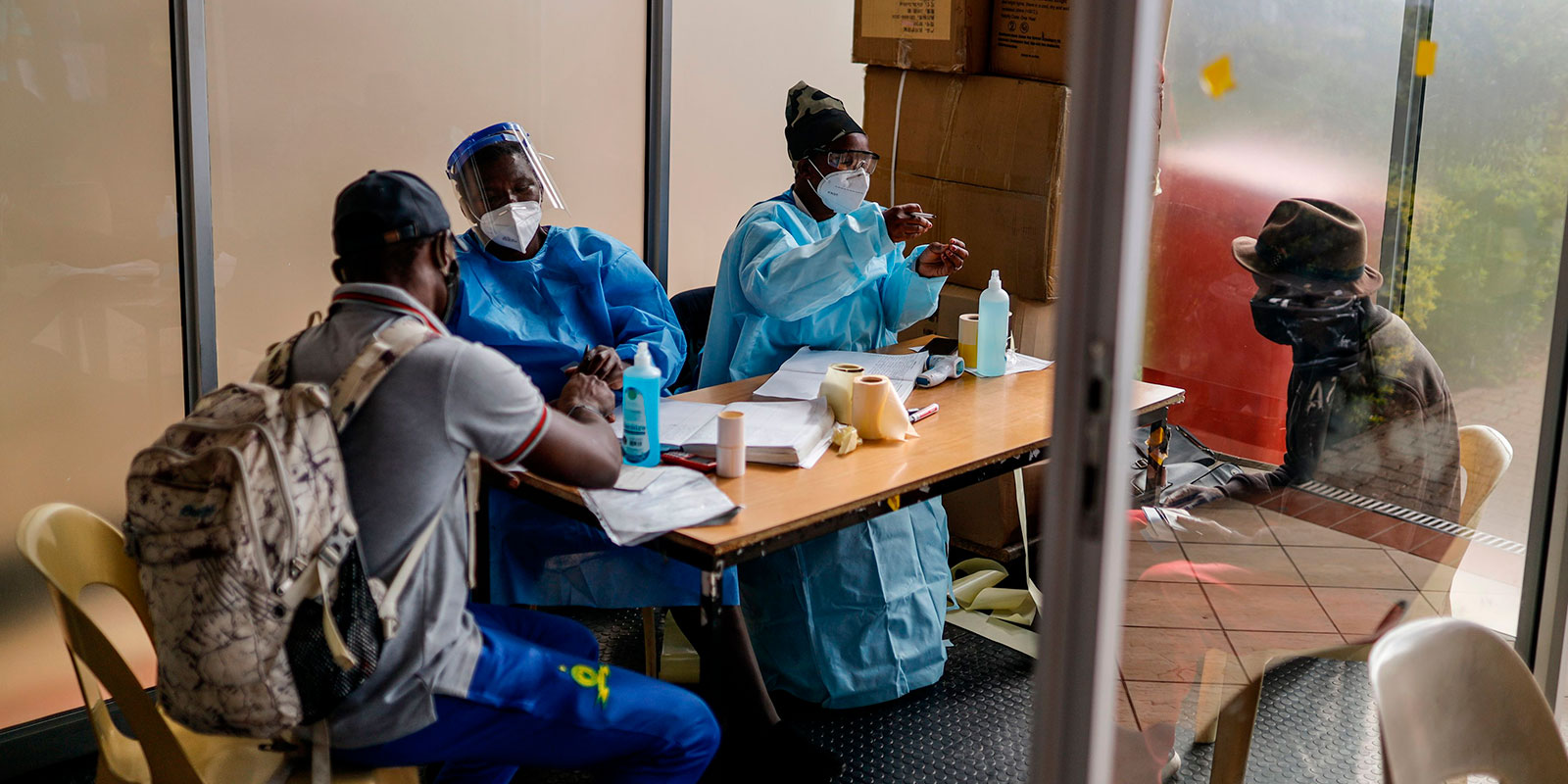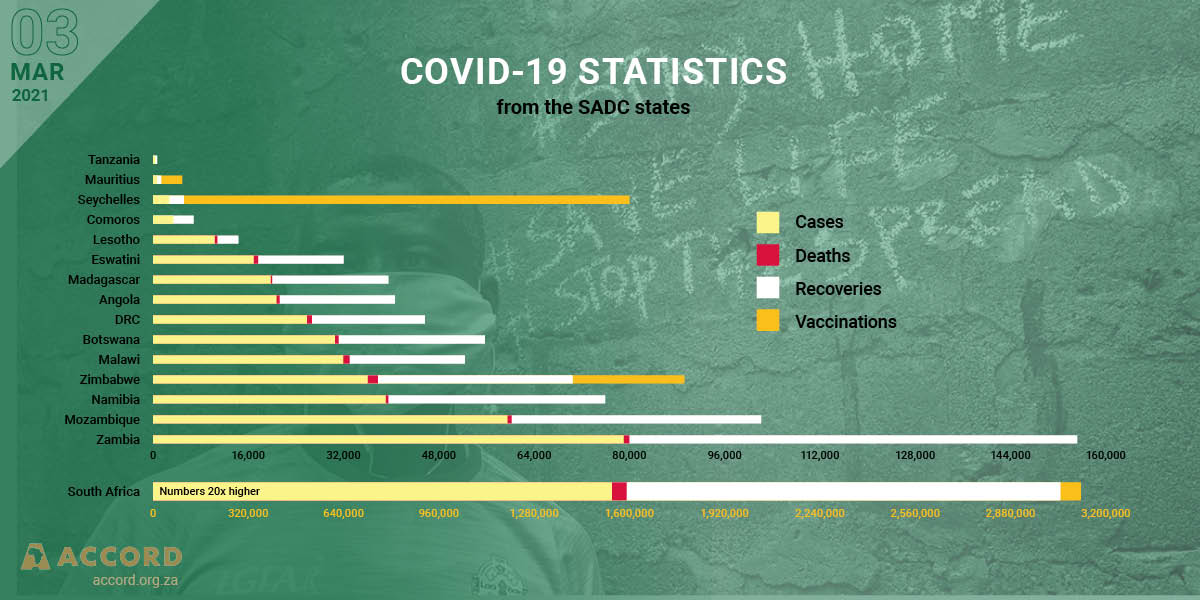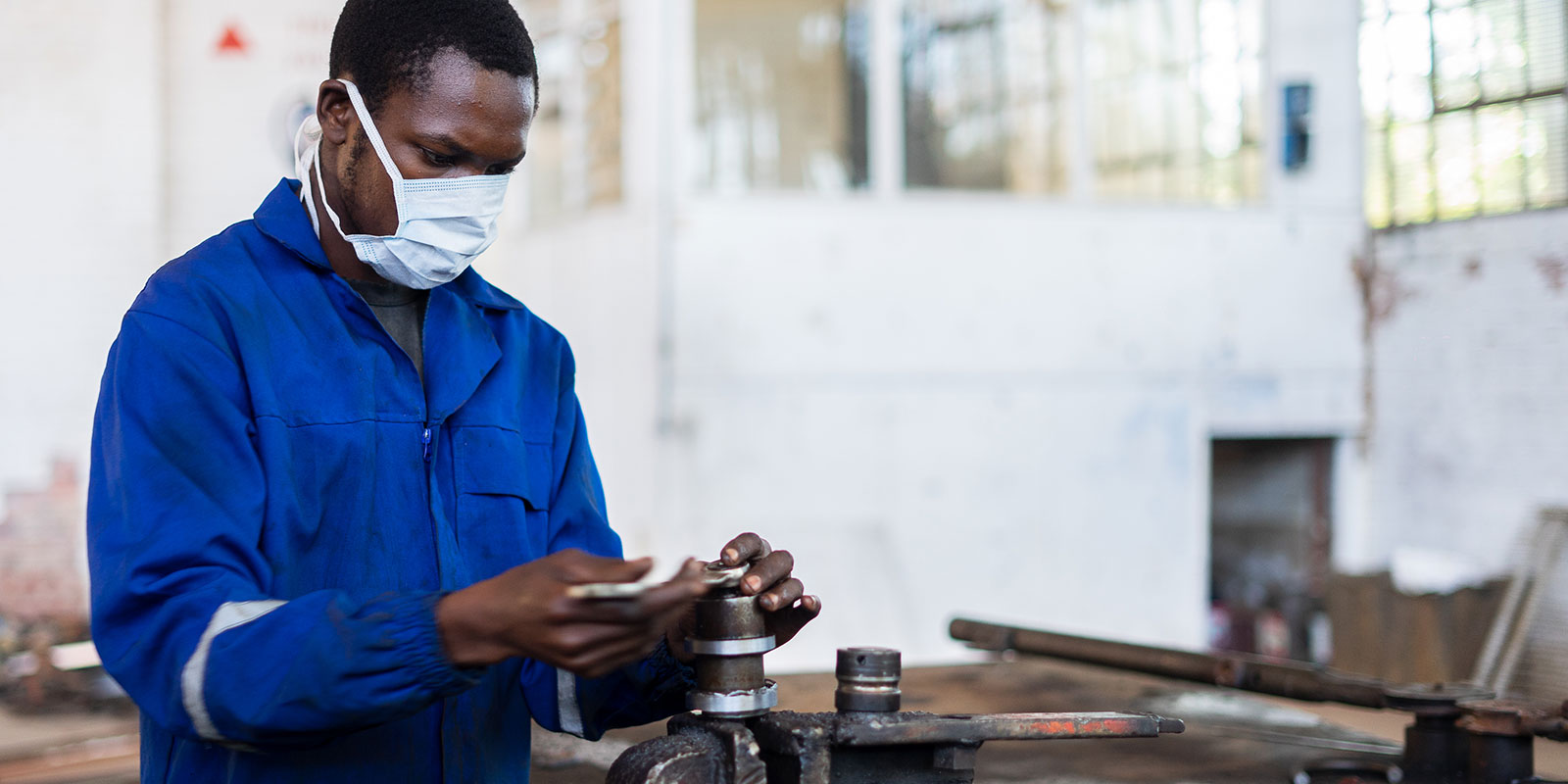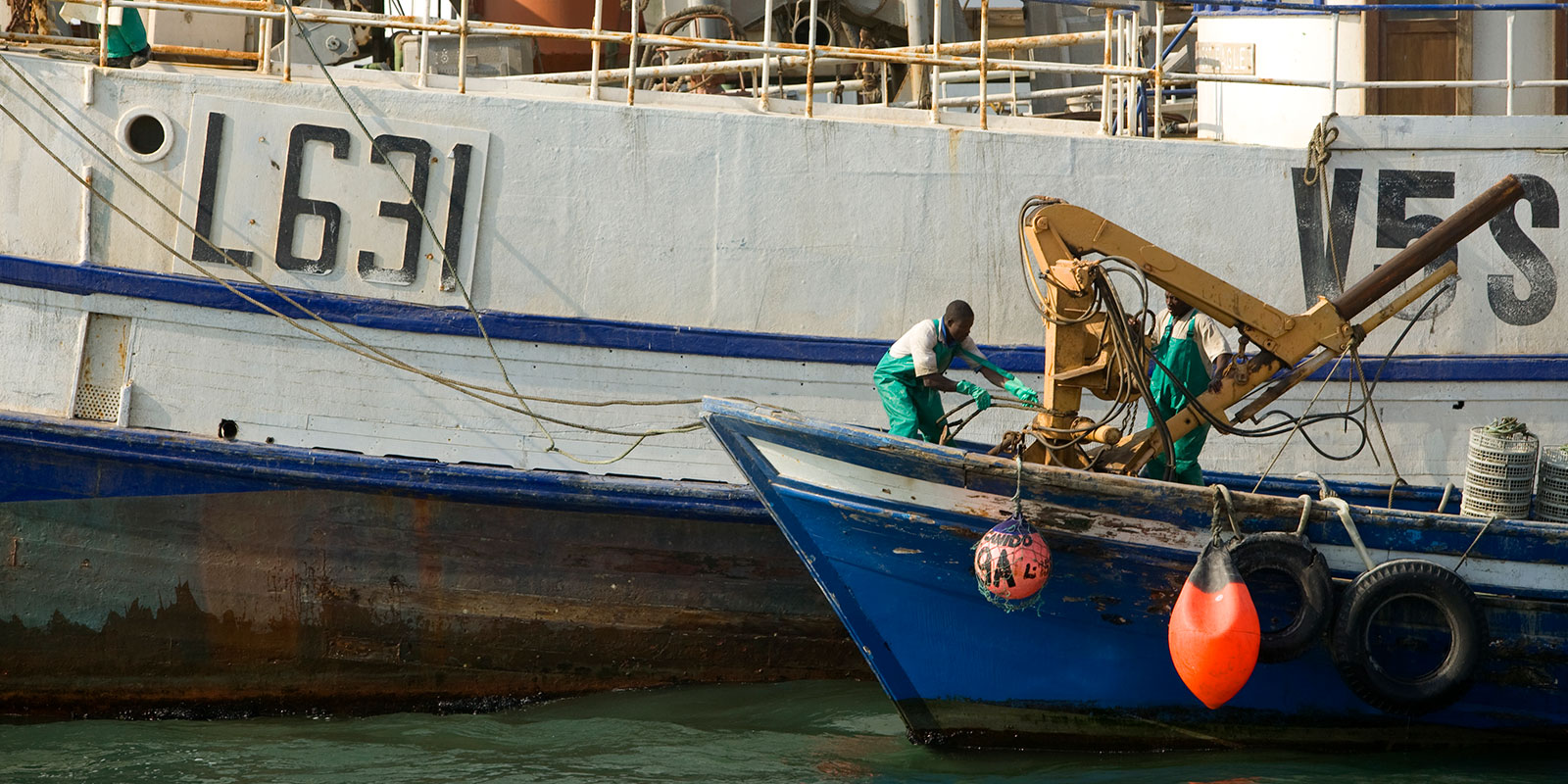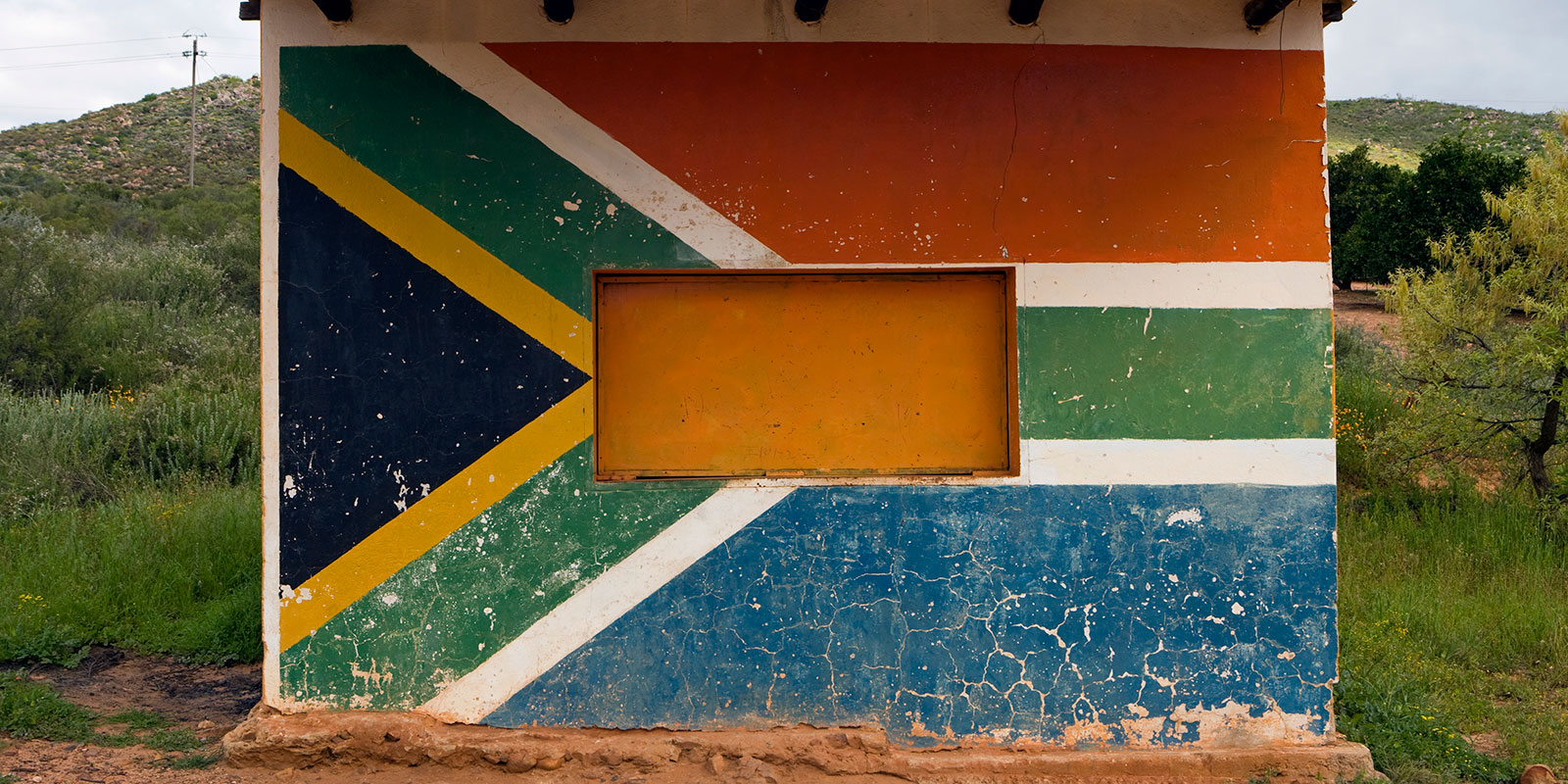This week’s special edition on SADC unpacks the impact of COVID-19 on the region. The Monitor features Dr. Stergomena Tax, the Executive Secretary of SADC, who discusses the effects of COVID-19 on economic, social and state-citizens’ relations in the SADC region.
ACCORD’s Marisha Ramdeen discusses the implications of the second wave of COVID-19 on Southern Africa’s rate of poverty and unemployment while Dr Richard Kamidza looks at how intra-SADC trade has been affected under COVID-19 restrictions. Finally, Sanusha Naidu reflects on the impact of both the first and second waves of COVID-19 on the socio-economic landscape of South Africa.

